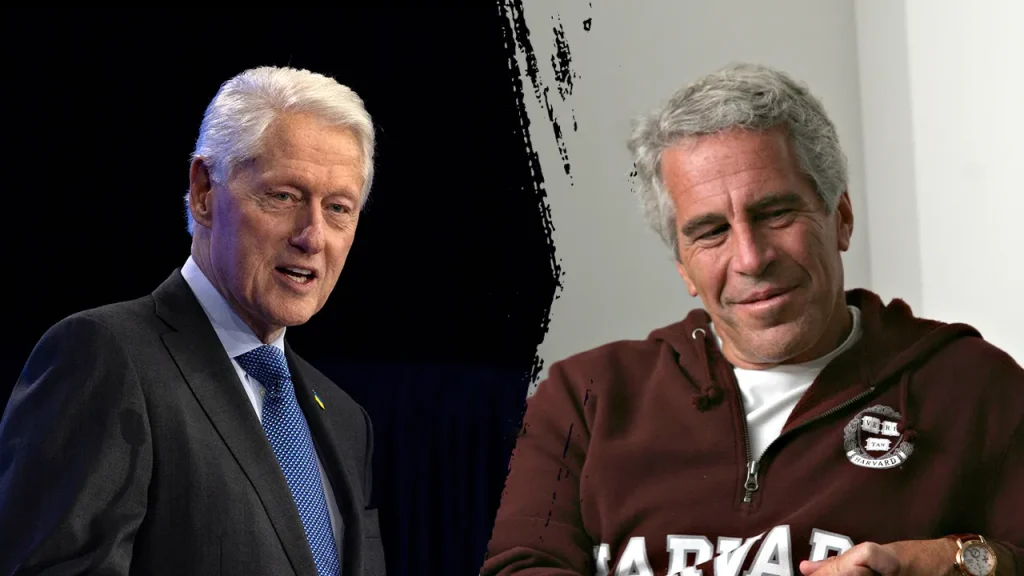House Oversight Committee Chair Demands Clintons Comply with Subpoenas in Epstein Probe
In a strongly worded statement, House Oversight Committee Chairman Rep. James Comer (R-Ky.) has warned former President Bill Clinton and former Secretary of State Hillary Clinton that they must comply with subpoenas requiring in-person depositions as part of the committee’s investigation into Jeffrey Epstein’s sex trafficking case. This demand comes after the Clintons’ attorney, David Kendall, suggested on November 3 that his clients could provide written answers instead of appearing in person, arguing this would be “the most efficient and equitable way to proceed.” Chairman Comer firmly rejected this proposal, stating that any attempt by the Clintons to avoid sitting for depositions would be “in defiance of lawful subpoenas and grounds to initiate contempt of Congress proceedings.” The committee has scheduled Bill Clinton’s deposition for December 17 and Hillary Clinton’s for December 18, emphasizing their commitment to providing transparency and accountability for both Epstein’s victims and the American public.
The dispute centers on what the Clintons can contribute to the investigation. Kendall maintains that the Clintons have “little to contribute” to the committee’s goals, suggesting that any information they possess could be “readily submitted on paper.” However, Chairman Comer insists that in-person testimonies are necessary, particularly given what he described as the Clintons’ “history with Jeffrey Epstein and Ghislaine Maxwell.” This investigation comes amid heightened scrutiny of Epstein’s connections to powerful figures following his 2019 death in a federal prison. While Bill Clinton has acknowledged traveling on Epstein’s jet, he has consistently denied ever visiting Epstein’s island and wrote in his 2024 memoir “Citizen” that he wished he had never met Epstein. It’s important to note that the former president does not face any accusations of wrongdoing related to his relationship with Epstein.
The congressional inquiry has gained momentum following President Donald Trump’s signing of The Epstein Files Transparency Act, which mandates the Justice Department to release all unclassified records and investigative materials related to Epstein and Ghislaine Maxwell. This legislation requires the disclosure of files concerning individuals referenced in Epstein’s previous legal cases, details about trafficking allegations, internal DOJ communications about Epstein, and information surrounding the investigation into his death. The bipartisan push for transparency has led to a flurry of document releases, with Democrats recently publishing three emails from Epstein’s estate mentioning Trump, while Republicans released more than 20,000 pages of Epstein documents on the same day. These communications, while authentic, contain unverified statements by Epstein and do not directly implicate either Trump or Clinton in wrongdoing.
The Epstein case has remained a focal point of public interest due to the financier’s connections with numerous high-profile figures across politics, business, and entertainment. The committee’s investigation aims to shed light on the full extent of Epstein’s activities and network, particularly given the questions surrounding how he managed to avoid serious consequences for his crimes for so many years. In one of the newly unearthed documents, Epstein stated in a 2015 email that Bill Clinton “NEVER EVER” visited his island in the Caribbean, which aligns with Clinton’s public statements on the matter. However, the committee appears determined to question both Clintons directly rather than relying solely on written statements or previously released documents.
The struggle between the Oversight Committee and the Clintons highlights the complex intersection of political accountability, criminal investigation, and public transparency. Chairman Comer’s insistence on in-person testimony reflects a broader commitment to thorough investigation, while the Clintons’ resistance through their attorney suggests concern about the political nature of the inquiry. The committee’s focus on Epstein’s connections to prominent figures has inevitably drawn political attention, with both Democrats and Republicans releasing documents that mention figures from the opposing party. Despite these partisan dynamics, there appears to be bipartisan support for uncovering the full truth about Epstein’s crimes and determining whether powerful individuals helped shield him from justice.
As December approaches, all eyes will be on whether the Clintons comply with the subpoenas or continue to resist in-person depositions. Chairman Comer has made it clear that further delays would constitute defiance of lawful subpoenas, potentially triggering contempt proceedings. Meanwhile, the Justice Department continues its work implementing The Epstein Files Transparency Act, which could result in additional revelations about Epstein’s network and activities. For survivors of Epstein’s crimes, these investigations represent a continuing effort to achieve justice and accountability, even years after his death. The committee’s determination to question the Clintons directly suggests that, despite the passage of time, questions about Epstein’s connections to powerful figures remain a matter of significant public interest.


